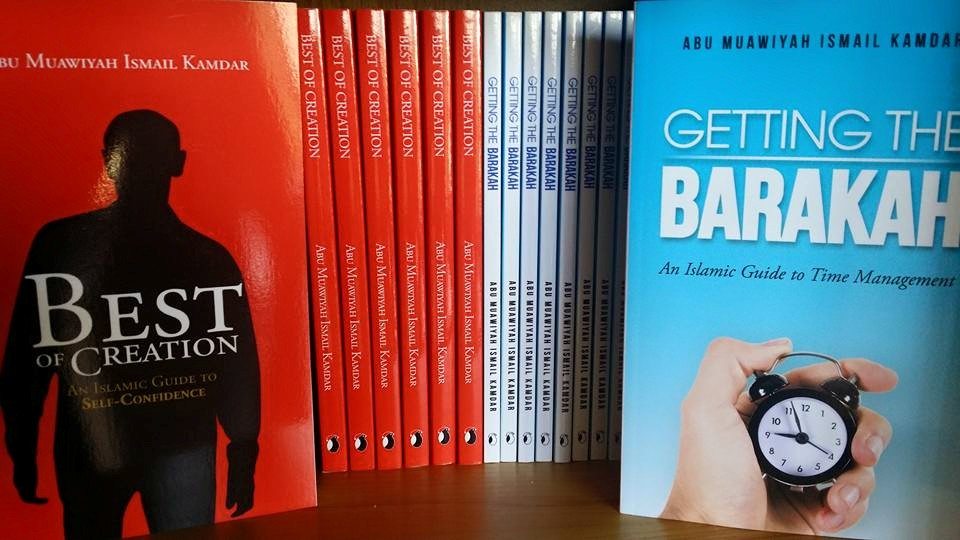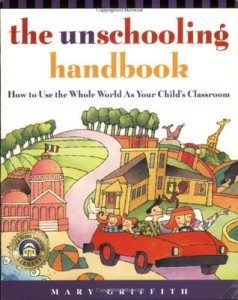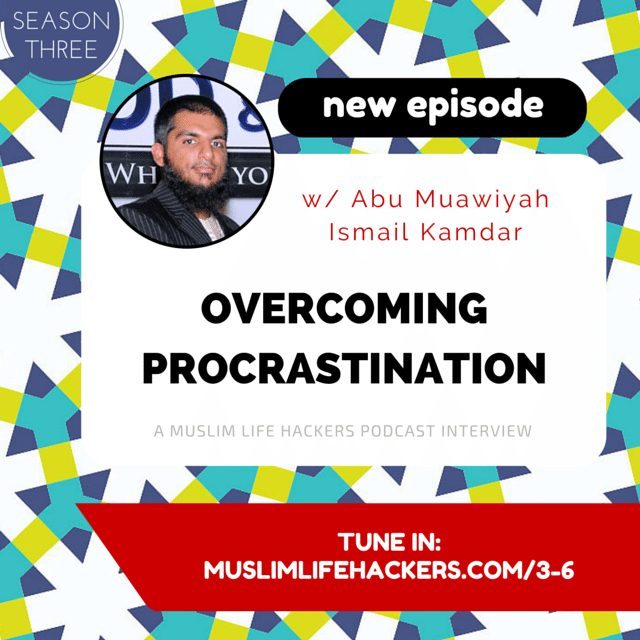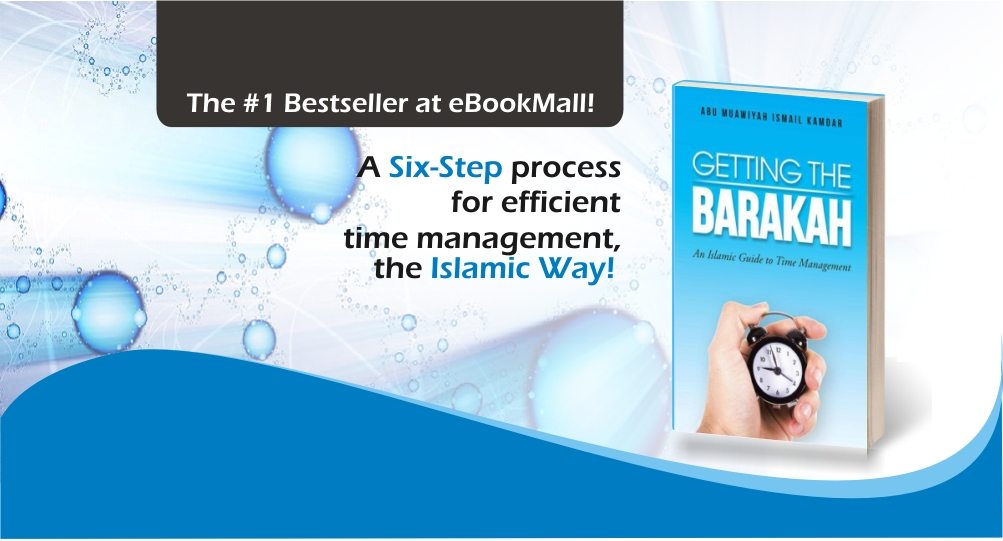Books
The 5 Best Books I Read in 2015
Out of 40 books, I rank my five best books of 2015
In 2015, I set for myself a goal of reading 50 books in one year. Although, I did not meet my goal, I came pretty close by reading 40 books. Not every book proved to be a good book though, and I really struggled through some which were rather monotonous and repetitive.
Nonetheless, there were also many books I read last year which were amazing and life-changing. Choosing the Top Five was difficult, especially since I read across multiple subjects, but after much thought, I concluded on these five books.
For this list, I considered only books that I rated 4 or 5 Stars on GoodReads, and from those I chose the five that had the biggest impact on my life. So here are the five books that I enjoyed the most in 2015:
5. The Unschooling Handbook – Mary Griffith
Homeschooling is a very important part of my life and I am constantly looking for resources that can help me improve our homeschool environment. I have read multiple homeschooling books this past year, but The Unschooling Handbook stands out as the one that challenged my thoughts on education the most.
This book focuses on how children are capable of learning themselves, and rather than direct instruction, they just need access to resources in order to grow and learn. Although I didn’t switch over to unschooling completely, I have taken many ideas from this book and changed my homeschooling routine accordingly.
This book ranks lower than the others for two reasons. The first being that I did not embrace its ideas completely, and the second being that it was written two decades ago so some of its ideas and topics are a bit outdated.
4. Talk Like TED by Carmine Gallo
Public speaking is another important part of my life, and I often wondered how the speakers at TED conferences were able to captivate audiences the way 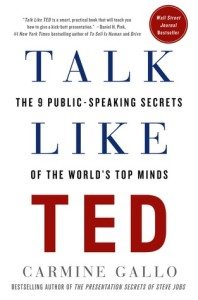 they do. This book did not disappoint as it analyzed the most influential TED talks for nine of the most essential tips for public speaking.
they do. This book did not disappoint as it analyzed the most influential TED talks for nine of the most essential tips for public speaking.
Each of these nine tips are crucial for effective public speaking and this book has reinforced the concepts I was already using, while introducing me to many new ones. It ranks among my Top Four for teaching me crucial tips like the 18 minute rule and the art of story telling. Definitely, a must read for public speakers.
3. How we differ (Arabic) – Shaykh Salman Al-Oudah
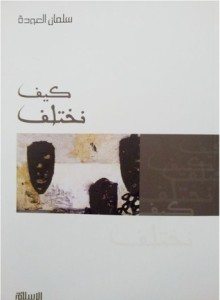 I chose just one Arabic book for this list, as most of my readers are English-speaking and my Arabic reading list for 2015 was quite small. Shaykh Salman Al-Oudah is someone I hold in very high esteem, and his books and lectures have had a great influence on my understanding of Islam and methodology of Dawah.
I chose just one Arabic book for this list, as most of my readers are English-speaking and my Arabic reading list for 2015 was quite small. Shaykh Salman Al-Oudah is someone I hold in very high esteem, and his books and lectures have had a great influence on my understanding of Islam and methodology of Dawah.
‘How We Differ’ was one such book which focused on topics like why differences of opinion exist among Muslims, acceptable and unacceptable differences of opinion, the manners of dealing with differences, and the causes of difference of opinion. The topics are really interesting and cover questions that many young people ask today. I highly recommend this book for anybody seeking to understand the differences that exist among Muslims, especially in issues of Fiqh.
2. Muhammad – The Perfect Teacher by Abdul Fattah Abu Ghuddah
Choosing between number one and two was really difficult, as both of these books are so good in two different genres. Muhammad – The 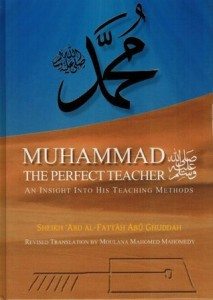 Perfect Teacher is a brilliant book for teachers focusing on Hadiths that narrate the teaching styles and methods of Prophet Muhammad (peace be upon him). The book is packed full of wisdom and I didn’t want it to end.
Perfect Teacher is a brilliant book for teachers focusing on Hadiths that narrate the teaching styles and methods of Prophet Muhammad (peace be upon him). The book is packed full of wisdom and I didn’t want it to end.
My only complaints are that the book was too short, and there are many more hadiths on this topic that could have been added. Also that some of the Hadiths are not explained, which makes it difficult to recommend to people who may misunderstand the Hadiths without the proper background and context. Nonetheless, this is an outstanding book, and is very well translated.
1. David and Goliath – Malcolm Gladwell
This was the one book in 2015 that I did not want to stop reading, and I hoped it would never end. It may seem controversial to some people that I ranked a book by a Non-Muslim author as my favorite book of the year, but this is 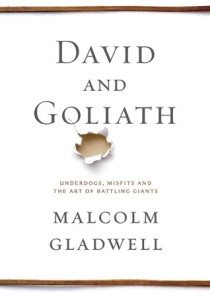 a list of my favorite reads, not my favorite Islamic books, and I would be lying if I did not admit that this was the book I enjoyed reading the most in 2015.
a list of my favorite reads, not my favorite Islamic books, and I would be lying if I did not admit that this was the book I enjoyed reading the most in 2015.
I love Malcolm Gladwell’s books and find them a fascinating study of psychology, but this one really stood out as it is a compilation of stories that explain how, over and over again, the relatively weak defeat the mighty.
Its a cycle we all recognize but Malcolm explains very well why and how it happens, by showing the advantages in perceived disadvantages (and vice versa), how some problems actually benefit us and help us grow, and most importantly how power blinds the powerful to their own weaknesses, which leads to their undoing. For fans of psychology, I highly recommend this book.
With that, I conclude my list for my Top 5 books for 2015. Check back again later in the week for more reviews of 2015, as well as some of my goals for 2016.
New Podcast Interview – Overcoming Procrastination
This is a link to a Muslim Life Hackers podcast about overcoming procrastination.
I was the guest on this episode, and we discussed many tips on overcoming procrastination, taken from my e-book Getting The Barakah.
“If you are afraid that it is going to take you 5 or 10 years to achieve a goal understand that those years are going to pass anyway and what will you show for it?” – Abu Muawiyah
Questions Asked:
- Why should our listeners care about time management and in turn being productive?
- Do you think that because time is not a tangible form of rizq we do not consider it as valuable?
- So for those of us who have also grown up in the 80s and 90s and have this notion of killing time, overhauling their habbits and starting to think long term sounds very intimidating. Where do we start with that process?
- How can someone tell if a decision is potentially harmful for them in the future or just an easy short cut? What is the difference?
- In your book you talk about how not all hours of the day have the same value. How can we use this to our advantage to get more done?
- The 7 day planner or the To-Do list? Can you explain these two systems and how they suit different lifestyles?
- What would you say to someone who says they are a procrastinator?
- Is having managed our time having a full calendar and always being busy? Where does relaxation and fun fit into the equation?
Getting The Barakah – Time Management E-Book
Be sure to check out our Time Management e-book, which contains over 150 pages of tips and techniques, and is available for purchase for only $8.99. That’s 150 pages of Time Management Training for under $10!
Is homeschooling right for me?
This is an extract from latest e-book Homeschooling 101
This is a valid question. I do not propose that the entire world switches to homeschooling in one go. That would be impractical for most and not possible for some. Every human has their own struggles, limits, goals, and opportunities.
I am not here to tell you that homeschooling is definitely for you, or that it is not. I will simply tell you what it is, what it is about, how to do it, and then you can decide for yourself if it fits your vision for your family.
That’s really what it comes down to. In order to know whether homeschooling is for you or not, you need to first ask what is your vision for your children.
It may be something you never thought about. Many of us are so caught up in just following the norm that we don’t think about things life visions and goals. We just have kids, send them to school at age five, off to college once done with that, then work a job until you are too old to work any longer. We take it for granted that this is the only way to live our lives.
But there are many other ways to live, other ways to learn, and other ways to earn. And as the world changes and technology continues to morph the way we earn and learn, the opportunities that your children will have may include things that do not exist yet. Are we preparing them for that reality, or are we still stuck in the twentieth century model of life?
To make it easier, let me explain my vision: I want to raise children who are righteous leaders, people of strong moral character, people with the skills and ability to adapt to an ever changing world and find ways to earn well no matter how drastically the economics of the world shift.
I want to raise my children to be adults in a world that doesn’t exist yet, to be able to deal with technology that doesn’t exist yet, to work at tasks that may not exist yet, and to maintain their religiosity and moral character no matter which direction the world moves in.
The current school system is not adequate in preparing them for this. It is stuck in a twentieth century model that holds back potential, trains blind followers, and prepares people to spend the rest of their lives working for others. I want more for my children and so I decided to homeschool them, even though it comes with many challenges.
That is my vision as a parent. Yours might be similar, or completely different. Whatever it is, it will determine whether homeschooling is right for your family or not.
There are other factors to consider as well. Homeschooling may be more difficult (but not impossible) for single parents, families were both parents work long hours, and families were neither parent feels confident in their ability to teach.
Homeschooling may also be impossible if you live in a country were homeschooling is illegal. Although there may still be ways to do it within the system if you research it thoroughly. These are all things to consider before making a decision.
In each of these cases, homeschooling is still possible if you are open to the idea of doing things very differently from regular schools. There are homeschooling parents who teach their children at night, some who take their children to work with them, and others who have delegated the task to a relative who wants to help.
My point is that you should not allow your circumstances to determine whether you homeschool or not. Make the decision based on your goals and vision. If someone feels strong enough about their goals, that person will find a way to achieve it and make things work.
If homeschooling is not legal in your country, look for other alternatives. There are some loopholes in the system that would allow you to homeschool. For example, some countries may allow you to keep your child at home if they are registered with a correspondence school and assessed over there. In such a case, you can still homeschool without breaking the law.
Speak to local homeschoolers and find out how they get around it and what works best, the solutions are often simpler and more practical than you initially thought.
Make the decision based primarily on your goals as a parent. If time is a factor, there are ways to make time creatively and fit it in.[1] If you are not confident in your own teaching skills, or access to resources, then take a course in homeschooling or read some books on the topic (like this one) and you will realize it isn’t as daunting as it sounds.
Whatever your excuse, there are ways around it if you have a clear purpose and reason for choosing to homeschool. Where there is a passionate goal, there is always a way. So focus on your goals and that will ultimately help you decide whether homeschooling is right for you or not.
Do you want to read more?
Click the link below to purchase the full e-book!
A warning about Fake Experts
What is an expert?
“An expert is an ordinary man away from home giving advice”
Oscar Wilde
The above statement was made in relation to fake experts, people who claim to be experts but if you were to actual inspect their home lives, you will find that they have no clue what they are talking about.
Why am I bringing up this topic? because there seems to be an influx of fake experts in the Muslim community and some don’t even realize what they are doing.
So what really is a fake expert?
A fake expert is someone who reads/listens to/watches something and then feels like he/she is an authority on the topic and qualified to teach it to others.
We see this happening with young people who read a book on Aqeedah then go around pretentiously acting like they are the experts on Aqeedah. Likewise with Fiqh and other Islamic sciences, the Shaykh Googles and Mufti Wikipedias of our generation are many.
Then you have the folk who claim they can teach you how to become millionaires or billionaires, while failing financially themselves. Instead of teaching based on experience, they are teaching based on something someone else experienced.
What’s the big deal with doing this?
There are several problems with claiming to be an expert in a field in which you are not, the primary of which is that it is deception and lying, both of which are prohibited and make doubtful the individual’s income earned from such claims.
Then there is the harm it causes to others. By teaching something you have no experience using, you can’t really know for sure that it will work, and often it doesn’t. Leading to the other person feeling betrayed by your claims of expertise.
On a business level, such claims hurt your personal brand in the long run because clients will eventual catch up that you don’t know what you are talking about, and will abandon you in droves. In short, its a Lose/Lose situation for all, yourself included.
How to recognize a fake expert?
I will give you one simple step for recognizing a fake expert: Find out the qualifications and experience of the individual you are taking knowledge from.
When it comes to Islamic knowledge, you want to make sure you are only taking knowledge from authentic and qualified scholars. Likewise, with worldly knowledge don’t just listen to anybody who claims to be an expert.
There is a huge difference between a best-selling author teaching you how to become a best-selling author, and a struggling author teaching you how to become a best-selling author. The former is far more likely to have something positive and beneficial to teach you.
The same applies to anybody, whether claim to be experts in finance, business, marketing, time management, or confidence-building. Check if they practice what they preach, if they are benefiting from it or not, and this alone will help save you from falling for con-artists and fakes.
Why I am very picky about what I write about?
I am very picky about what I write about. I get many requests to write books on a variety of topics, and I only choose those which I feel confident enough to write about based on my own experiences.
For example, I am often asked to write about parenting and I usually reply that I will write about parenting in ten years time when my kids have grown up and I have seen if how I raised my kids worked or not. Until then, it is too early for me to write about parenting as I am still a young parent making mistakes and growing.
Likewise, when I am asked to write Fiqh books, I shy away from it as I feel I still need years of study and research before I can consider myself an expert in that field, despite my qualifications in Islamic Studies.
However, I have written about Time Management because it is something I have been practicing and implementing for years, and so my writings are based on my experiences, not theory and readings.
Likewise, I wrote about Self-Confidence because I used to lack confidence and learned many tools to help myself grow into a more confident individual, and I wanted to share those tools, experiences and insights with those who are in the same situation I was in.
Finally, I had no intention to write about Homeschooling for many years because I do not consider myself an expert in homeschooling yet. Rather, I am still in the early years of being a homeschooling dad and still gaining experience.
However, I decided to write about the first year of homeschooling because it is something I successfully experienced last year, so I could write about it based on my experienced and not just theory.
The point I’m trying to make is that we should only write/speak/teach based on experience and applied knowledge, and should not claim expertise is things that we are still struggling with and learning ourselves. We should be humble enough to know our limits, yet confident enough to know our true areas of expertise.
This is why whenever I want to learn something new, I always look at the most successful people in that field, and learn from the, because it is through such people that you will gain the most beneficial knowledge in that field.
